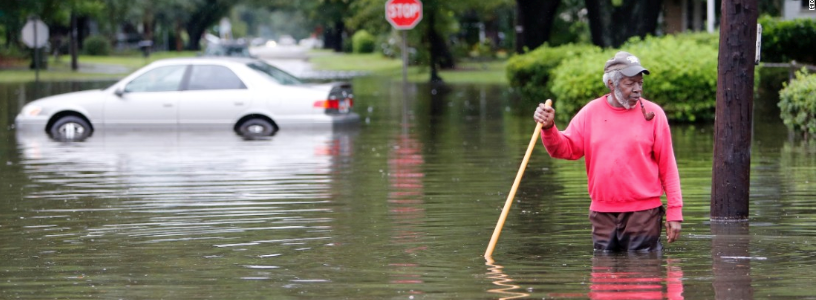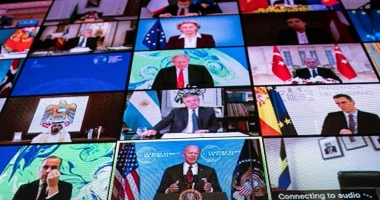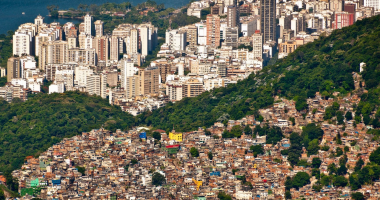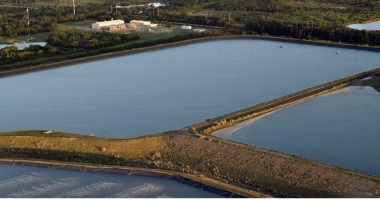Climate, Health and Equity Brief
South Carolina, the “Anti-Greta” and Coronavirus
February 28, 2020
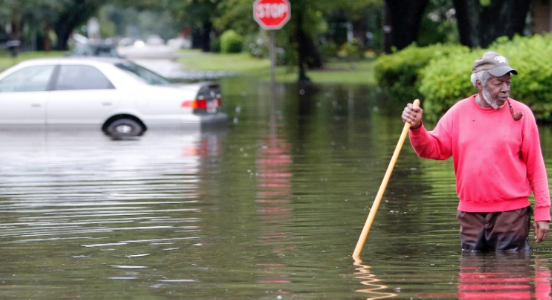
|
Hot Topic: Representation. As Black History Month draws to a close, voters in South Carolina are set to go to the polls on Saturday for the first-in-the-South Democratic primary. South Carolina has a 27 percent black population—among the highest in the nation—and the state has been ravaged by the impacts of climate change. The city of Charleston flooded one out of every five days in 2019, according to the National Weather Service, with many African American neighborhoods paying a disproportionate price.
Despite this, not one question from the moderators of Tuesday’s South Carolina presidential debate focused on climate change, a fact that has outraged high-profile activists and drawn criticism from candidates. Martin Luther King III has called upon South Carolina voters to consider candidate positions on climate change as they head to the polls tomorrow, citing the frequent flooding, poor water quality and increased rates of asthma that have ravaged many black communities in the state.
In a far different kind of activism, 19-year-old German YouTube influencer Naomi Seibt has been hired by the White House-aligned Heartland Institute to serve as the “anti-Greta” face of its efforts to spread climate denial among the world’s youth. She makes her American debut this week at the Conservative Political Action Committee (CPAC) conference, alongside speakers that include President Trump.
—Matt & Traci, GMMB
Following a South Carolina presidential debate that failed to address climate change or environmental inequality, Martin Luther King III called on voters to consider candidates’ climate positions at the polls, citing the climate impacts—particularly the frequent flooding crises—that have taken a disproportionate toll on the state’s poor and African American communities. (The Washington Post)
Warming waters along the coast of Alaska are producing toxins that poison local shellfish, threatening the food supply that some Native Alaskan tribes have relied upon for thousands of years. (Grist)
With every region of the Philippines vulnerable to rising sea levels and weather disasters exacerbated by climate change, residents of the nation’s waterlogged Batasan Island are choosing to hunker down and adapt rather than endure the trauma of migration. (The New York Times)
Health
The coronavirus outbreak has caused a 25 percent decline in carbon emissions from China due to factory shutdowns, canceled flights and stalled construction, offering a sobering reminder of how deeply the modern economy still depends on fossil fuels. (The New York Times)
An increasing number of medical schools in the U.S. are now offering courses on climate change as increases in natural disasters, asthma, allergies, infectious disease, depression and other ailments all continue to rise in response to a warming climate. (MarketWatch)
Politics & Economy
19-year-old YouTube influencer Naomi Seibt will serve as the “anti-Greta” face of the latest campaign to question scientific consensus on climate change; she makes her American debut at this week’s CPAC. (The Washington Post)
A recent analysis revealed that automated Twitter bots are responsible for a quarter of daily tweets on climate, many of which spread misinformation on climate science and applaud denialist policies such as the U.S. withdrawal from the Paris Agreement. (The Guardian)
Currently the largest lender to fossil-fuel companies, JPMorgan Chase announced plans to restrict funding for new oil and gas development, though critics charge that the most significant restrictions in the company’s new policy affect only a small portion of their fossil lending. (Axios)
A new analysis shows that the oil and gas industry rewards U.S. legislators with substantial campaign contributions when they oppose environmental protections, with 88 percent of their $84 million in 2018 donations going to Republicans. (The Guardian)
A focus group recently conducted with swing voters in Florida found that while some strongly oppose rollbacks on environmental regulations by the Trump Administration, they are not enough to get them to vote against Trump in November. (Axios)
Action
Singapore is devising a $72 billion climate resilience plan that includes a coastal and flood protection fund and investments toward research into urban sustainability solutions, including renewable energy. (Bloomberg)
Youth climate activist Greta Thunberg is using $100,000 of prize money from a December award to establish the Greta Thunberg Foundation in Sweden, which will promote ecological and social sustainability, along with mental health. (The Hill)
Kicker
Up for a challenge? Test your climate knowledge and see if you can pass this 10-question quiz.
“We don’t need to stand by—we need to stand up.”
– Martin Luther King III
Have feedback on this issue? Email us.


